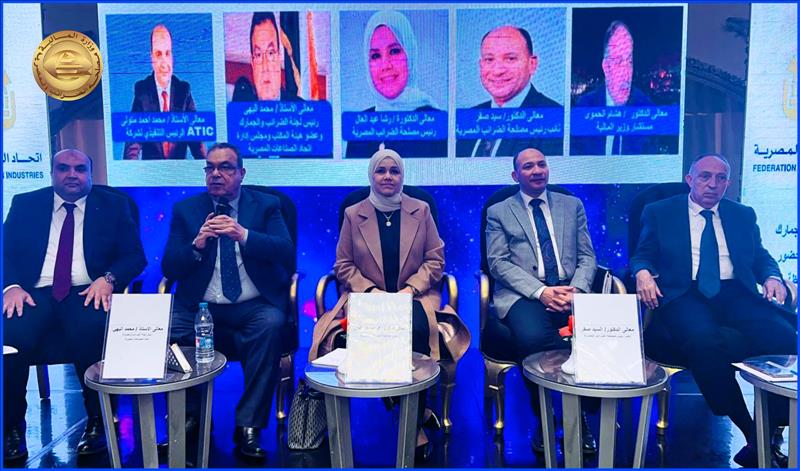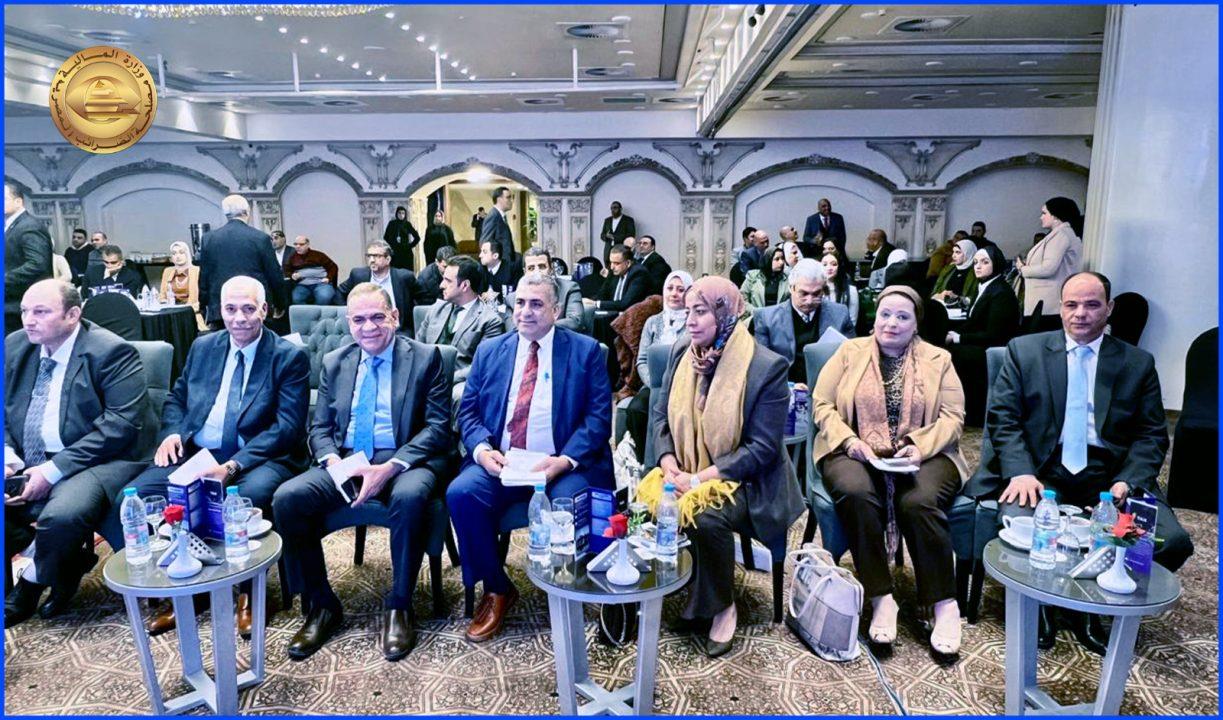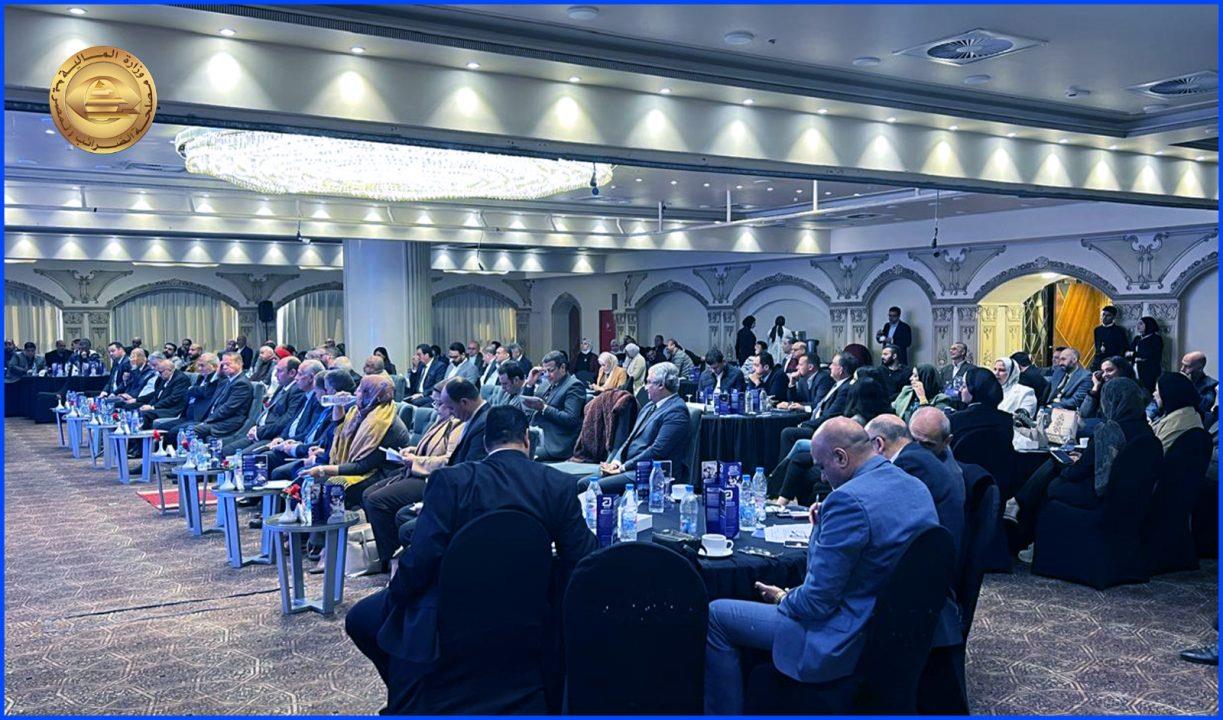
Port Said Hosts Meetings To Strengthen Business Collaboration, Support Investors
Rasha Abdel Aal, Head of the ETA, emphasized that the event was part of a broader initiative aimed at fostering collaboration between the Tax and Customs Committee and the Tax Authority. This cooperation aims to integrate the informal economy into the formal sector, promoting tax justice and improving the overall business environment.
Abdel Aal highlighted that this initiative is aligned with the priorities of the Minister of Finance, particularly the goal of integrating the informal economy as a key driver of financial and economic stability. She described Port Said as a crucial economic and trade hub, making it an ideal location for the start of a series of meetings and field visits.
She expressed appreciation for the Federation of Egyptian Industries, praising its proactive role in supporting economic reforms and initiatives that enhance the business climate. Abdel Aal assured that the Ministry of Finance and the Tax Authority prioritize initiatives that benefit investors and strengthen the national economy.
She also referenced the newly introduced tax relief package, noting that the relevant draft laws have been forwarded to the Planning and Budget Committee of the House of Representatives for review and approval.
Abdel Aal explained that these tax reforms are designed to integrate the informal economy into the formal system, addressing a major concern of the business community due to the detrimental effects of the informal sector on overall economic performance and tax equity.
The first package of tax benefits is tailored to businesses with annual revenues of up to EGP 15 million, offering an incentive for small and medium-sized enterprises (SMEs) to join the formal economy and access state-provided benefits.
Key features of the tax relief package include:
-
Exemptions from stamp duties, registration fees, and notarization costs for company incorporation, credit facility agreements, and mortgages tied to business operations for five years.
Exemption from taxes and fees on contracts for registering land required for establishing such projects.
Tax-free capital gains on the sale of assets, machinery, or production equipment within this framework.
Tax exemptions on profits distributed from activities covered under the integrated system.
A simplified tax approach that avoids withholding taxes and advance payments, with a lump-sum tax rate based on annual turnover.
A streamlined annual tax declaration model has been developed for commercial, industrial, or professional activities under this system. In addition, businesses will now submit quarterly VAT declarations instead of monthly ones. These businesses will undergo an audit after five years, provided they comply with the electronic invoicing and receipt systems mandated by the ETA. The Tax Authority will offer technical support to facilitate this transition.
For payroll taxes, Abdel Aal noted that businesses would only need to submit an annual tax reconciliation under the Unified Tax Procedures Law, with simplified record-keeping requirements.
Mohamed El-Bahi, Chair of the Tax and Customs Committee at the Federation of Egyptian Industries, reinforced the importance of the ongoing collaboration between the Federation, the Tax Authority, and the broader business community. He described the current phase of cooperation as a new chapter in government-private sector relations, aimed at addressing investor concerns and enhancing economic development.
El-Bahi praised the Ministry of Finance for its commitment to structural reforms in the tax system, designed to simplify procedures and promote transparency. He also shared that a comprehensive tax reform program is nearly complete, which will facilitate Egypt's goal of becoming a global economic hub.
The choice of Port Said for the first field visit was a strategic decision, given its potential for future economic growth. El-Bahi emphasized that the tours aim to resolve local investor issues, boost exports, and advance Egypt's vision of becoming a leading global economy.
He also underscored the importance of formalizing the informal economy to foster fair competition and increase state tax revenues, aligning with sustainable development goals.
El-Bahi concluded by highlighting the current opportunity for strengthening dialogue between the government and the tax community, ensuring that the reforms needed for economic growth and a prosperous future for Egypt are realized.

Legal Disclaimer:
MENAFN provides the
information “as is” without warranty of any kind. We do not accept
any responsibility or liability for the accuracy, content, images,
videos, licenses, completeness, legality, or reliability of the information
contained in this article. If you have any complaints or copyright
issues related to this article, kindly contact the provider above.


















Comments
No comment